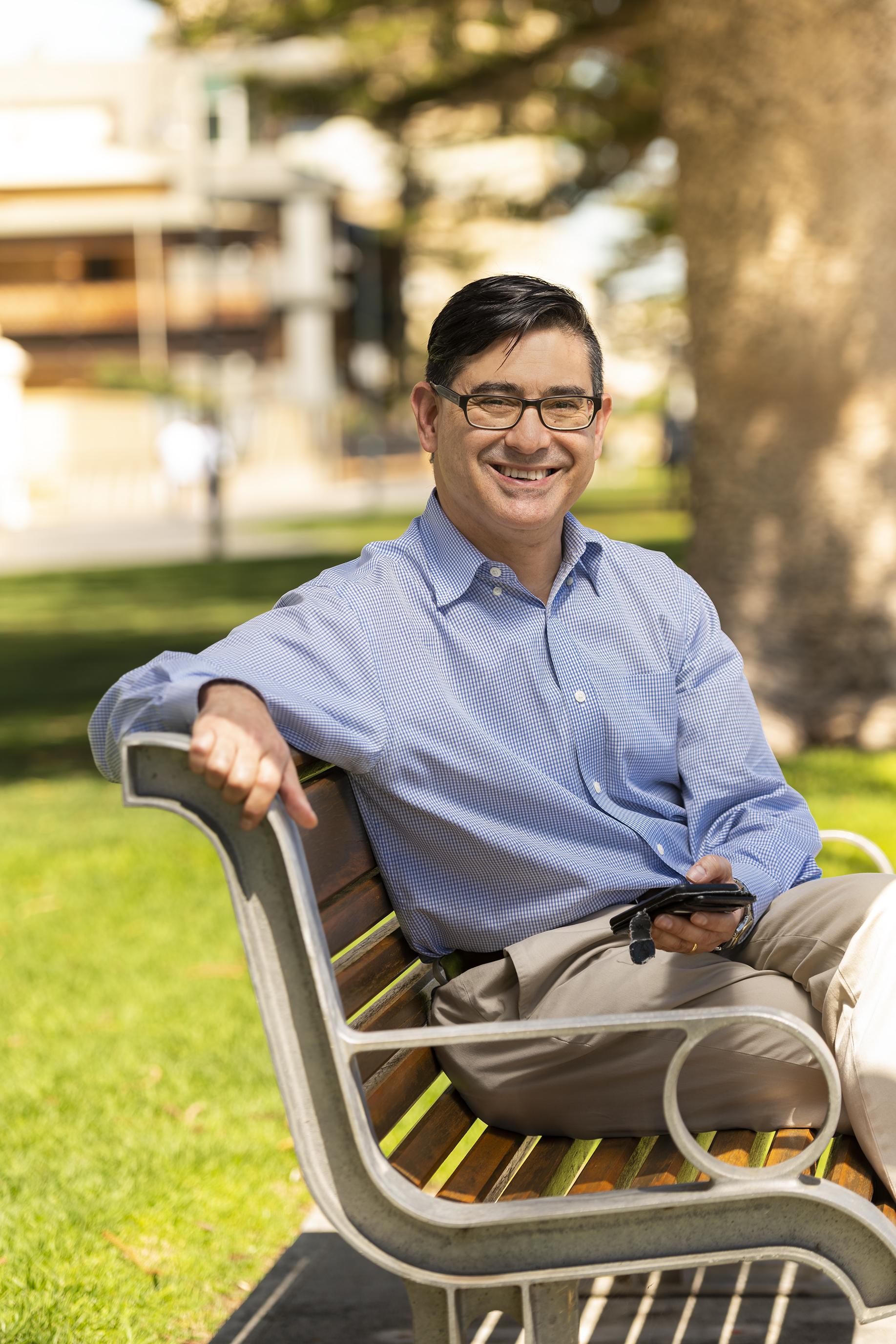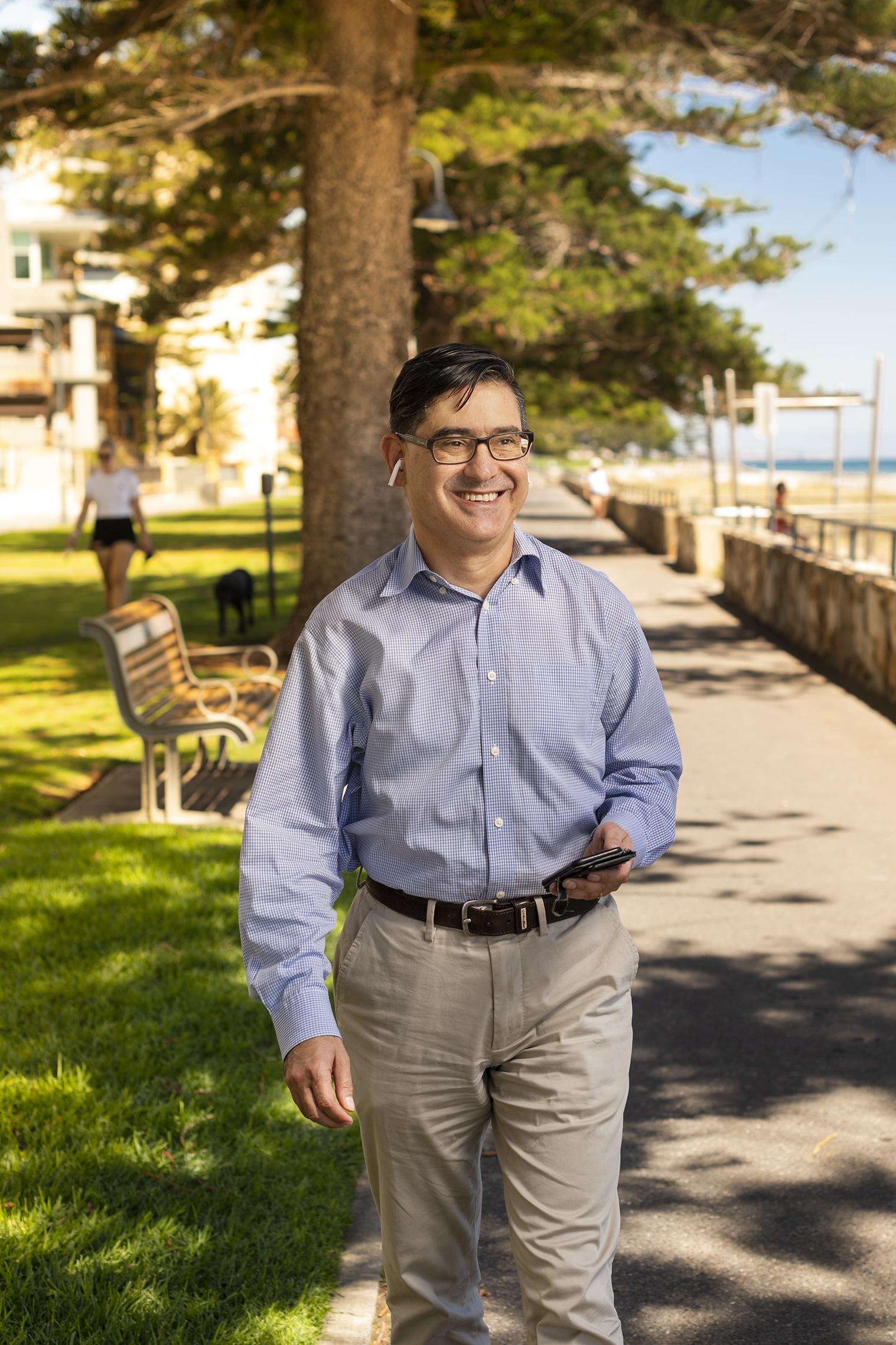Connected Conversations | Sepehr Shakib
Teaching and learning look a bit different in the post-COVID world. With online lectures and Zoom meetings galore, pharmacology professor, Professor Sepehr Shakib, is taking teaching innovation outside the virtual classroom. Sepehr took to Instagram to share his lessons and went from eight Facebook friends to over 1,000 Instagram followers in just a few months.

Please tell us a little bit about yourself.
My name is Sepehr Shakib, and I am Professor of Clinical Pharmacology in the Faculty of Health and Medical Sciences. As a professor in clinical pharmacology, I teach about drugs—not the recreational kind—the ones you take when you are sick. Pharmacology is the study of medicines and I teach it to a wide group of students, including medical and nursing students, dentistry, and health and medical science students. I have been a full-time academic since 2016, but have been teaching at the University for over 20 years. I am also the lead of the Clinical Research Facility at the Adelaide Health and Medical Sciences (AHMS) building, and have been conducting clinical trials for over 20 years.
What has been your journey to get where you are today?
After finishing my medical degree and physician training, I started out as a clinician. I worked at the Royal Adelaide Hospital as a clinical pharmacologist and general physician, and I never thought I would be an academic. I would look after patients with general medical issues (diabetes, heart disease, that kind of thing) and my particular area of interest was patients with multiple chronic diseases, who then ended up being on multiple medications. I set up a clinic specialising in patients with multiple chronic diseases to deliver their care more holistically and got involved in deprescribing research — the science and art of taking people off their medications.
Along the way, I was also the medical lead for SA Health’s electronic health record, which would deliver electronic prescribing in our public hospitals — a much safer way of prescribing medications.
So, in the midst of all of that, I was approached about a position at the University of Adelaide. This was a role previously fulfilled by one of my mentors, Professor Felix Bochner, and the opportunity of stepping into his shoes was simply too good to pass up, so I applied and was fortunate to get the job.
I came to this position with a lot of teaching and clinical expertise. So that is what I hope I bring to the role. I hope that I can make the learning of pharmacology relevant for students by linking it back to real clinical scenarios of helping actual patients.
Along the way, I also hope that we have fun, because I think that students learn better if they are enjoying lectures and learning activities.
What do you love most about working at the University of Adelaide?
The best part of my job is definitely the students. Engaging with young people, seeing the world through their eyes, as they learn new things and navigate new knowledge, is a great way to keep your childlike enthusiasm about the world and stay young in your thinking. I really like students who engage, respond and like to have fun with topics. I often set problems and hypotheticals, and get students to work through them in my lectures.
What inspired you to pursue a career in health?
I originally wanted to be an engineer, like my dad. But then, just before Year 12, I was in a car accident, where I thought I was going to die. When I woke up in hospital, I was just so happy and grateful to have survived. I wanted to make other people feel that way too, so I studied medicine instead.
There are just so many different things you can do in health. The work is always changing as people and diseases change, and you are always being challenged by new people and new situations. You also have to commit to lifelong learning, which is not a bad thing. If you’d like to finish your university degree and say, “Okay world, give me what you’ve got!”, then a career in health is for you!

What opportunities do you see for the future?
Universities have a vital role in society in educating the population. We need to come up with newer ways of teaching content and concepts to students. This will require a lot of innovative approaches to engage students but will also create the potential to reach a larger, more diverse audience.
Last year, with the online lectures, students had less opportunity to come up and ask questions about the content afterwards. So, I found that many students would then email me about similar stuff they did not understand. This made me realise that I needed to explain some of the material better and there had to be a better way than emailing the same answer multiple times.
So, I set up an Instagram account where students could send in questions and I would answer for them and everyone else together. This worked really well because I teach similar content across multiple different courses so the same video explanation of a concept could reach a large group of students. By the end of last year, I had over 1000 followers (given that I have like eight friends on Facebook and seven of them are family, that is quite an achievement!). I see that we will need to get innovative to reach out to more students in ways which are suitable and user-friendly for them.
What do you like to do in your spare time?
I like to walk the dog and listen to podcasts. Okay, admittedly, it is just so that I can listen to my podcasts in peace, but the dog is very grateful.
How do you relax or switch off?
I like to watch the English Premier League and pretend I know something about sports. I am also a big fan of the re-runs of 30 Rock.
Which destination is at the top of your list of places to go when international travel returns to normal?
I just miss going away to conferences and the whole experience of learning new things about a topic and a new city all in one week.
